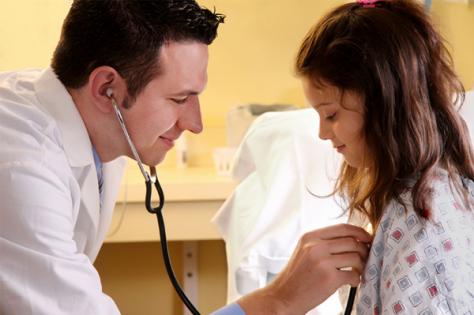An extended family of 42 people with a history of heart rhythm disorder have been successfully treated by Sydney medical researchers using gene-based therapy, even though some of them had been told they only had months to live.
The gene therapy is an example of what is known as ‘personalised medicine’ where diagnosis, prevention and treatment are customised to individuals based on genetic and other factors.
Around 1 in 2,000 Australians are affected by heart rhythm disorder (known medically as dilated cardiomyopathy or DCM), including newborns, children, adolescents, adults and the elderly, with at least 30% of cases caused by an inherited gene change. It is a condition where the heart cannot pump enough blood to the body making it a major risk factor for heart failure and stroke.
Rather than using conventional heart failure medicine the researchers from St Vincent’s Hospital Sydney and the Victor Chang Cardiac Research Institute identified and treated the gene mutation that causes the disorder.
Associate Professor Diane Fatkin, lead author on the study, says the results have been outstanding, with many patients with severe disease returning to full health within six months.
“This is game‐changing research. Whilst we can only claim to have treated one particular mutation that causes cardiac dysfunction, and there is still much more to do to find the genetic causes of heart disease in every family, this is a huge step in the right direction.”
Professor Fatkin, together with Professor Jamie Vandenberg and Associate Professor Rajesh Subbiah screened 42 members of one family for the disorder.
“As part of our family studies, we recommend to all family members, even those without any symptoms, to have cardiac investigations. We found that several of the young men in this family who felt completely well, in fact turned out to have very severe dilated cardiomyopathy. Many of the patients were going downhill on conventional heart failure medication, and several had been implanted with defibrillators because of the risk of sudden death,” said Associate Professor Fatkin.
Genetic screening of the family revealed a rare gene variant in the cardiac sodium channel that was present in all affected family members and a very unusual set of extra or ‘ectopic’ ventricular heart beats.
“Usually ectopic beats are thought of as a consequence of dilated cardiomyopathy, and not the other way round. Patients are treated with diuretics, beta blockers and the regular drugs you get for heart failure, but we found these patients weren’t getting any better – in fact they were getting worse,” said Associate Professor Fatkin.
The researchers recommended that family members be treated with a ‘sodium channel blocker’ to potentially combat the ectopic beats. Sodium channel blockers are not usually recommended for patients with heart failure because of the potential for adverse side effects.
Within 6 months following treatment with the sodium channel blocker, patients who had horrific ventricular ectopic beats, returned to almost normal electrocardiograms and their heart function significantly improved.
Associate Professor Rajesh Subbiah, Co‐Director of Cardiac Electrophysiology at St Vincent’s Hospital in Sydney, and co-author on the paper, says this is an example of integrated medicine and research at the cutting edge, as well as the capacity of personalised medicine to achieve significant health outcomes.
“We still have a long way to go for many families, but this research is an example of what can be achieved if we know the what, where and why about the underlying gene mutation. It’s also a perfect example of research that extends from the bedside to the bench and back to the bedside – and how molecular research and clinical medicine can come together to unravel the cellular mechanisms of cardiac arrhythmias and cardiomyopathies.”
The research is published in the Journal of the American College of Cardiology.


















__small.png)










